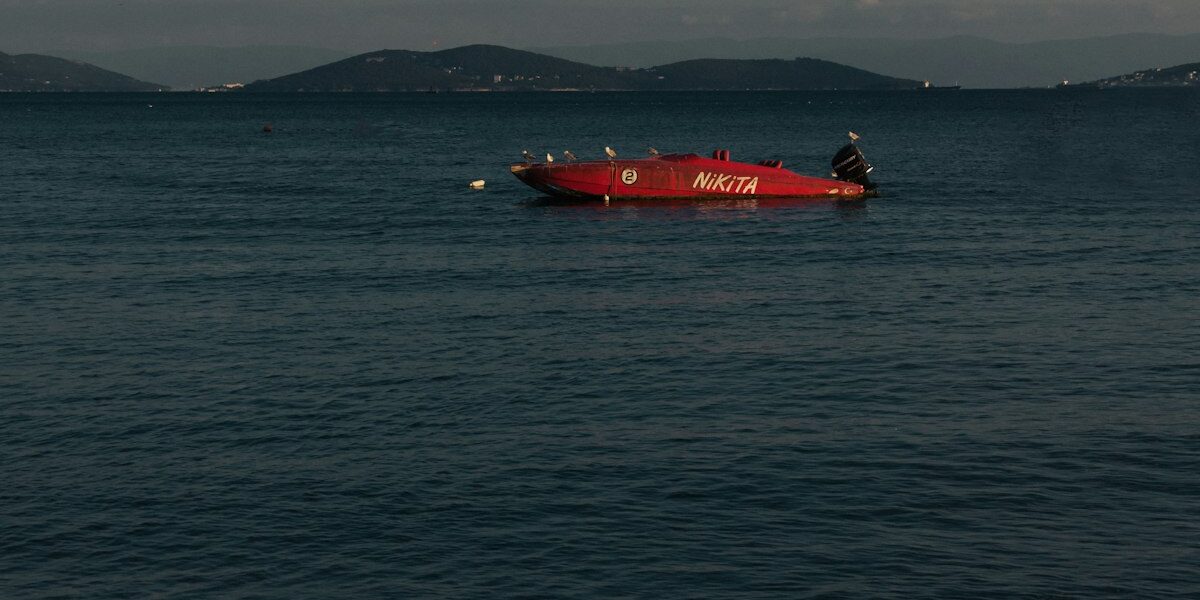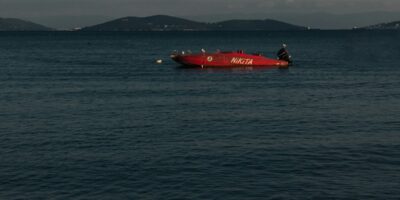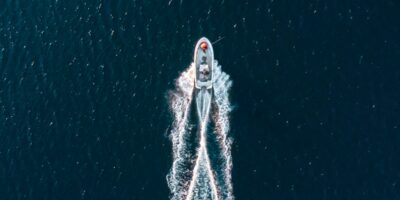What I’ve Learned About Making the Most of a Boat Lake Trip
Boat lakes have gotten complicated… or at least, choosing the right one has. As someone who’s spent years puttering around on everything from beat-up aluminum rowboats to sleek little sailboats, I learned everything there is to know about the boat lake experience. Today, I will share it all with you.
Here’s the thing — there’s something about being out on the water that just resets your brain. Doesn’t matter if it’s a massive reservoir or a tiny lake tucked away in the woods. You get out there, kill the motor, and suddenly the world gets very quiet. That’s the draw, and it never gets old.

The Boats You’ll Actually See Out There
I’ve been on lakes where you’ll see every kind of watercraft imaginable — all in one afternoon. Paddle boats with families laughing and going in circles. Kayakers hugging the shoreline, nice and quiet. Canoes doing that classic slow glide. And then some guy in a speedboat rips through and everybody’s bobbing in his wake.
Rowboats still have a real charm to them. There’s no engine noise, just the creak of the oarlocks and the splash of water. I’ve had some of my best fishing days in a simple rowboat. Sailboats are a different animal altogether — they demand more skill, but watching one move across a lake with its sails full? That’s beautiful. Each type serves a different mood, honestly. Some days you want speed, other days you just want to drift.
Not All Lakes Are Created Equal
Probably should have led with this section, honestly. The type of lake you’re headed to matters more than most people realize. Natural lakes — the ones carved out by glaciers or formed by tectonic shifts — tend to be irregular in shape and full of surprises. The underwater terrain varies, the wildlife is diverse, and you never quite know what’s around the next bend.
Artificial lakes are a different story. They’re built for a reason, usually water storage, flood control, or recreation. They tend to be more predictable, which isn’t a bad thing if you like knowing what you’re getting into.
- Natural Lakes: Usually irregular in shape, fostering diverse ecosystems. These are where I’ve had my most memorable trips.
- Artificial Lakes: Often more uniform, designed with human needs in mind. Great facilities, usually well-maintained.
- Oxbow Lakes: Created when a wide meander of a river is cut off. They’re surprisingly peaceful and often overlooked.
- Crater Lakes: Formed in volcanic craters or calderas — stunningly picturesque and worth the drive if there’s one near you.
Yeah, You Need to Know the Rules
Every lake has its own rulebook, and I can’t stress this enough: read it before you launch. I’ve seen people show up with motorboats at electric-only lakes. That’s an embarrassing conversation with a park ranger you don’t want to have.
Some lakes ban motorized boats entirely to keep things quiet and protect wildlife. Others carve out specific zones — swimming over here, fishing over there, speedboats way out in the middle. Following these rules isn’t just about avoiding a fine. It’s about making sure the lake stays healthy and everybody has a good time. That’s what makes lake boating endearing to us water lovers — we all share the same resource, so we’ve got to look out for it together.
Being a Good Steward on the Water
Lakes are more fragile than they look. I’ve watched a favorite fishing spot of mine go downhill over a few years because people got careless. Invasive species are a real problem — milfoil, zebra mussels, you name it. If you’re moving your boat between different bodies of water, clean it thoroughly. I mean really clean it. A pressure wash isn’t overkill.
Watch where you’re going in shallow spots too. Aquatic vegetation might not look like much from above, but it’s the foundation of the whole ecosystem down there. Prop damage can tear it up fast. And it goes without saying, but don’t dump anything in the water. Pack out what you pack in.
There’s Way More to Do Than Just Boat
A boat lake isn’t only about the boats, even though that’s what brings most of us there. I’ve had days where I spent more time fishing off a dock than I did on the water. Some lakes are stocked specifically for anglers, which is a nice bonus when the bite’s been slow.
Bird watching has surprised me over the years. I wasn’t really into it until I started noticing the herons and ospreys that hang around lake shorelines. During migration season? It can be incredible. And don’t sleep on the hiking trails that loop around most lakes. Sometimes the best view of the water is from up on a ridge, looking down at it all.
Lakes Have Stories Worth Knowing
There’s something I find really cool about the history behind lakes. Many of them have been gathering places for centuries — even millennia. Old civilizations settled near lakes because the resources were right there: fresh water, fish, fertile land along the banks.
And the myths? Don’t get me started. Nearly every culture has legends tied to lakes. Some of them are beautiful, some are eerie, all of them add something to the experience. I always do a quick search before I visit a new lake to see if there’s any history or folklore attached. You’d be amazed what you find sometimes — sunken ships, old settlements, stories passed down through generations.
Weather Can Change Everything Fast
I’ve been caught out on the water when a storm rolled in faster than the forecast said it would. That’ll teach you to respect the weather, quick. Wind is the big one for sailboats, obviously, but even in a motorboat, choppy water and reduced visibility make things dicey in a hurry.
Seasonal changes matter too. In colder climates, your favorite lake might freeze over completely — which opens up a whole different world of ice fishing and skating. Spring rains can raise water levels and change the character of the lake. Droughts do the opposite, and I’ve seen launches that become unusable when the water drops enough. Always check conditions before you head out.
Safety Isn’t Optional Out There
I’ll be blunt about this one: wear your life jacket. I don’t care how strong a swimmer you are. Cold water shock is real, and even experienced boaters have gotten into trouble. I keep mine on the whole time I’m on the water now, no exceptions.
Beyond that, make sure your boat has the right safety gear — fire extinguisher, whistle or horn, throwable flotation device. Check the weather before you go and keep checking it while you’re out. Storms can build fast on open water. Even on a calm day, stay alert. Complacency is what gets people hurt.
Picking the Right Lake for What You Want to Do
With hundreds of boat-friendly lakes out there, narrowing it down can feel overwhelming. My advice? Start with what you actually want to do. Want peace and quiet? Look for smaller, no-wake lakes. Want to water ski? You need a bigger lake that allows motorboats and has enough room.
Do your homework ahead of time. Check if there are boat rentals available — not everyone has a boat in the garage, and that’s totally fine. Look at parking, launch access, and whether there are campgrounds or cabins nearby if you want to make a weekend of it. A little research goes a long way toward having a great day on the water.
Get Plugged into the Local Lake Scene
Some of the best tips I’ve ever gotten came from locals who’ve been boating their lake for decades. Lake communities are real, and they’re usually pretty welcoming. Boating clubs, fishing groups, even casual meetups at the marina — all of these are worth your time if you’re serious about the hobby.
I joined a local boating group a few years back and it changed the whole experience for me. Suddenly I knew the best spots, the best times, and the unwritten rules that make everything smoother. Whether you’re brand new or you’ve been at it for years, there’s always something to learn from the people around you.
How Tech Has Changed the Game
Technology’s made boating better in ways I wouldn’t have imagined twenty years ago. GPS is standard now, even on smaller boats, and it’s a game-changer for navigation and marking your favorite spots. Fish finders take a lot of the guesswork out of angling — though some purists would say that’s cheating. I say it’s efficient.
The biggest shift I’m seeing is electric motors. They’re quiet, they don’t pollute, and they’re getting more powerful every year. On a calm morning, running electric instead of gas is a completely different experience. You can hear the birds, the water, everything. Traditional engines still have their place for speed and range, but electric is gaining ground fast and I’m all for it.
Recommended Boating Gear
Stearns Adult Life Vest – $24.99
USCG approved universal life jacket.
Chapman Piloting & Seamanship – $45.00
The definitive guide to boating since 1917.
As an Amazon Associate, we earn from qualifying purchases.



